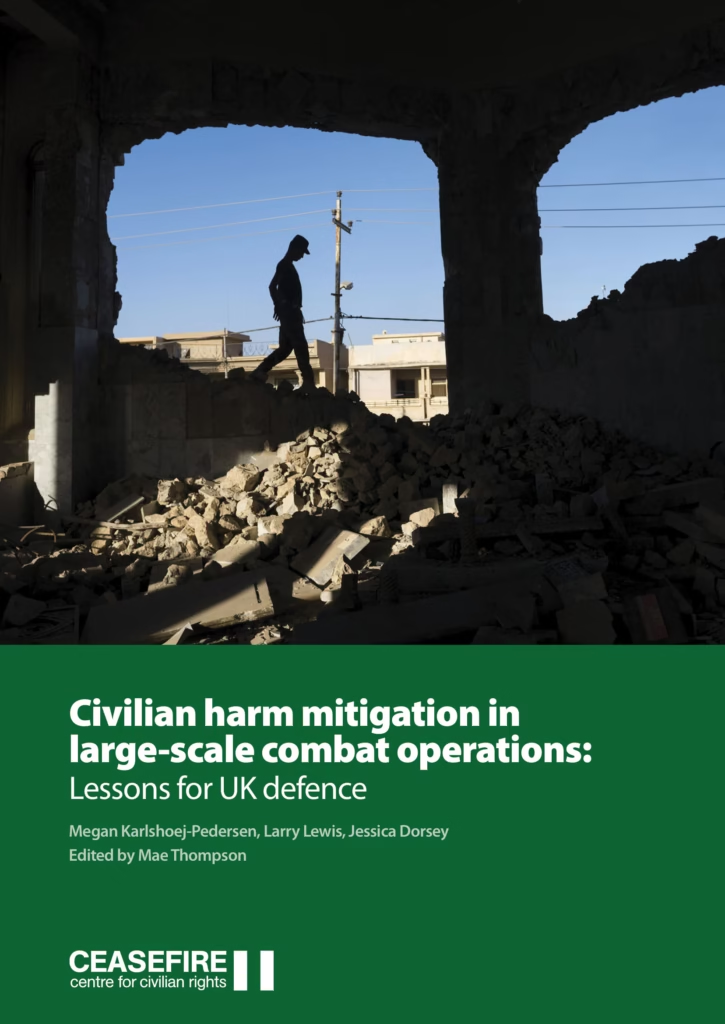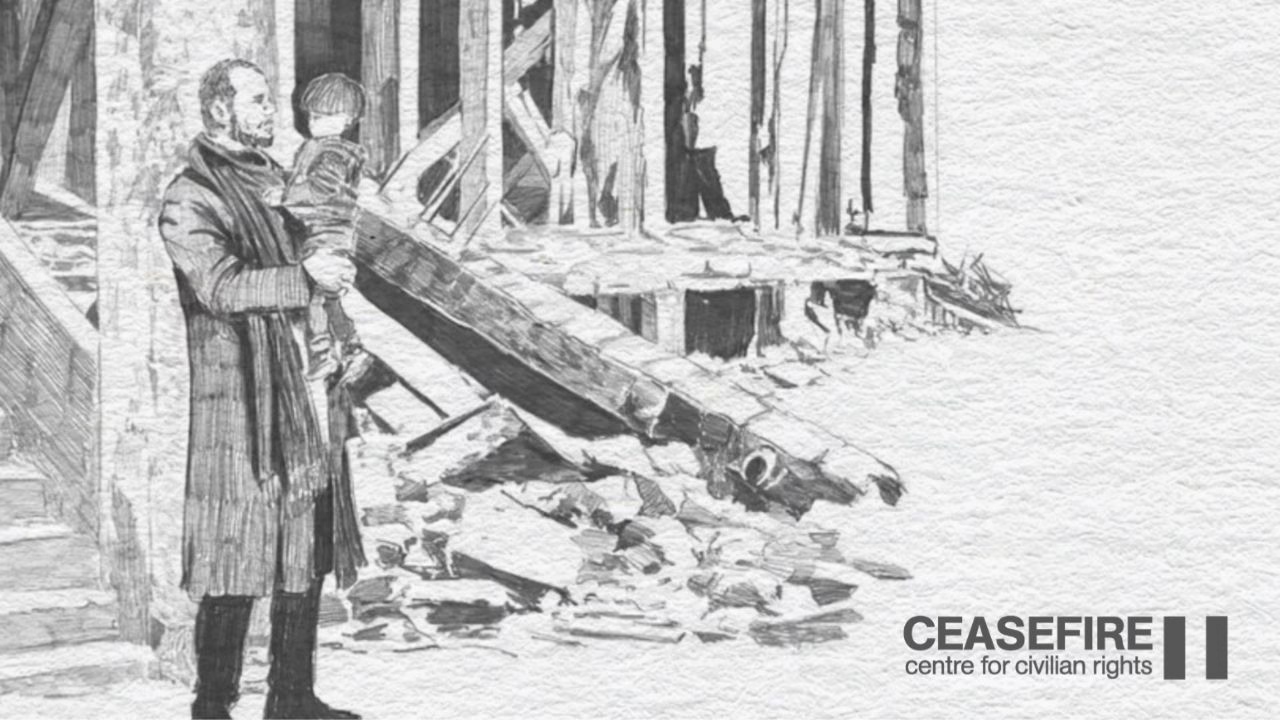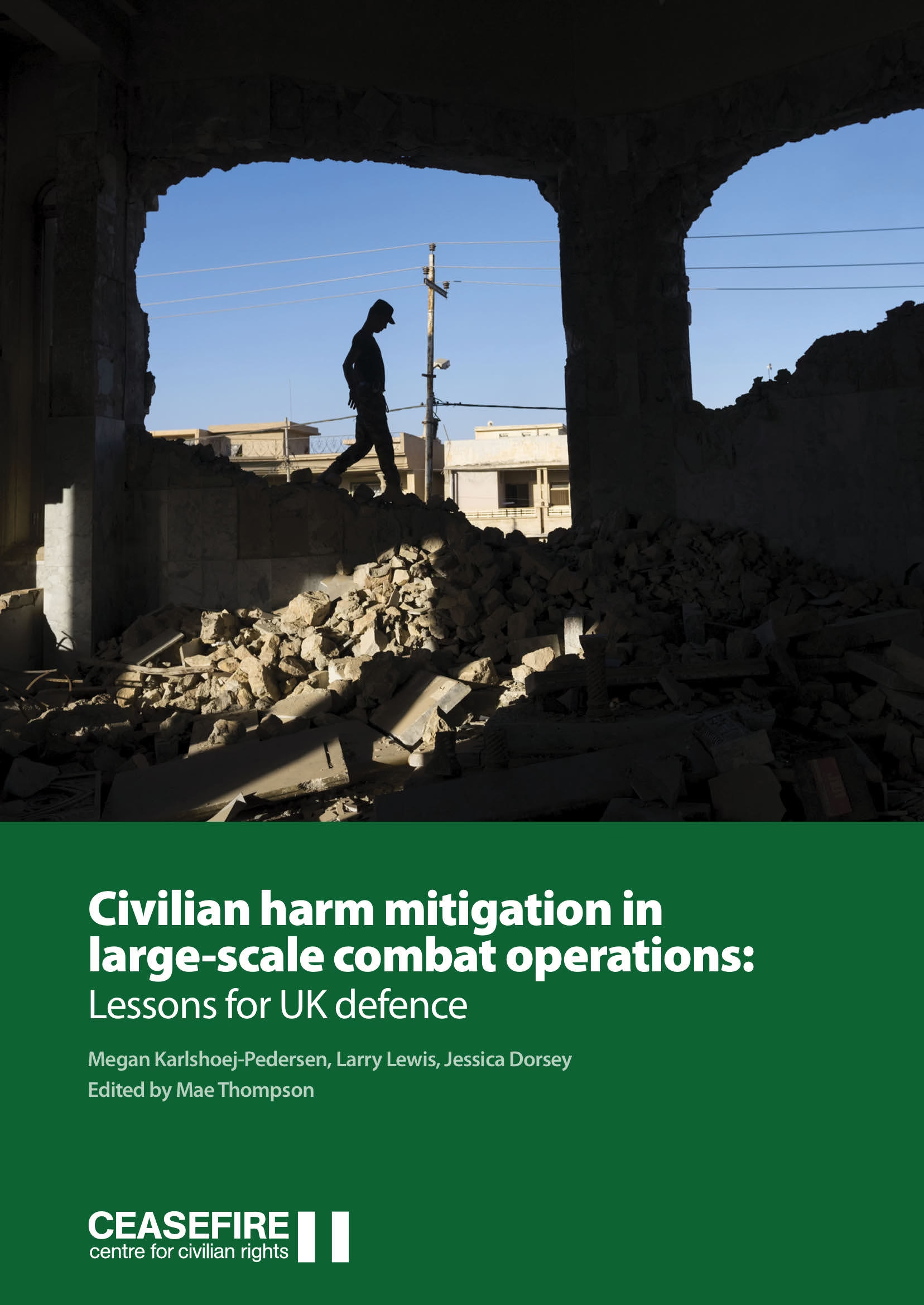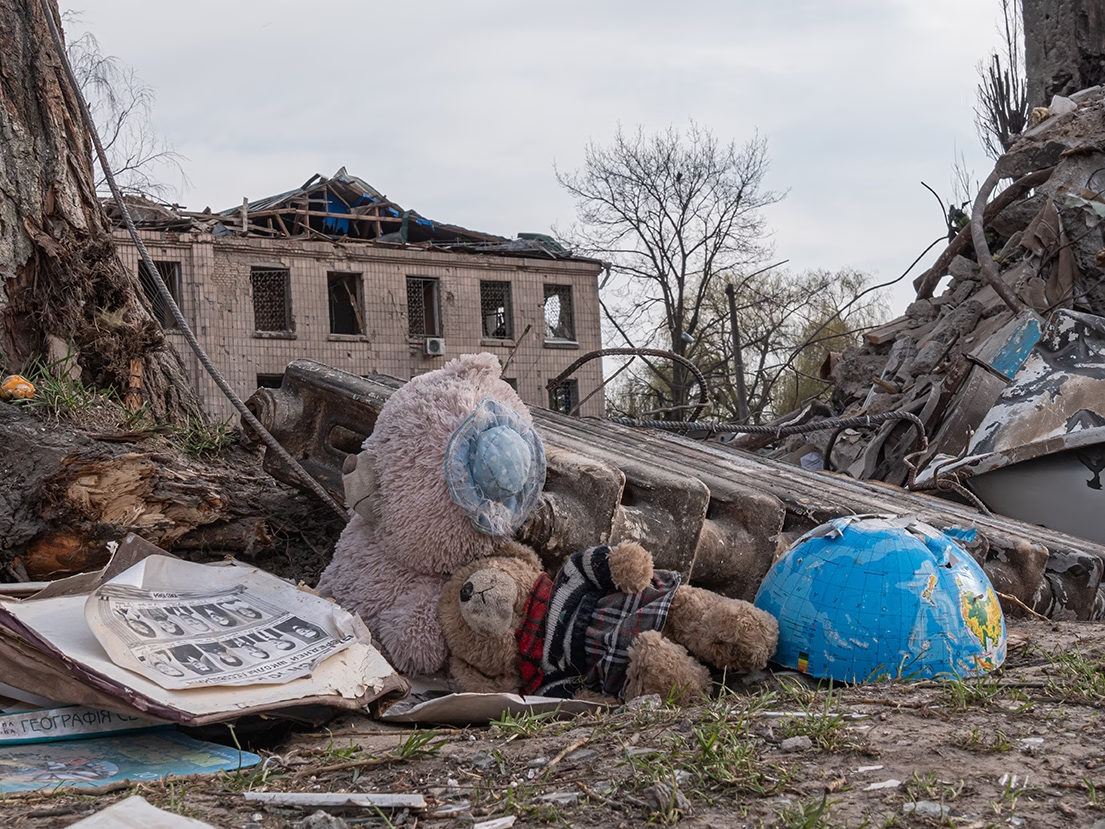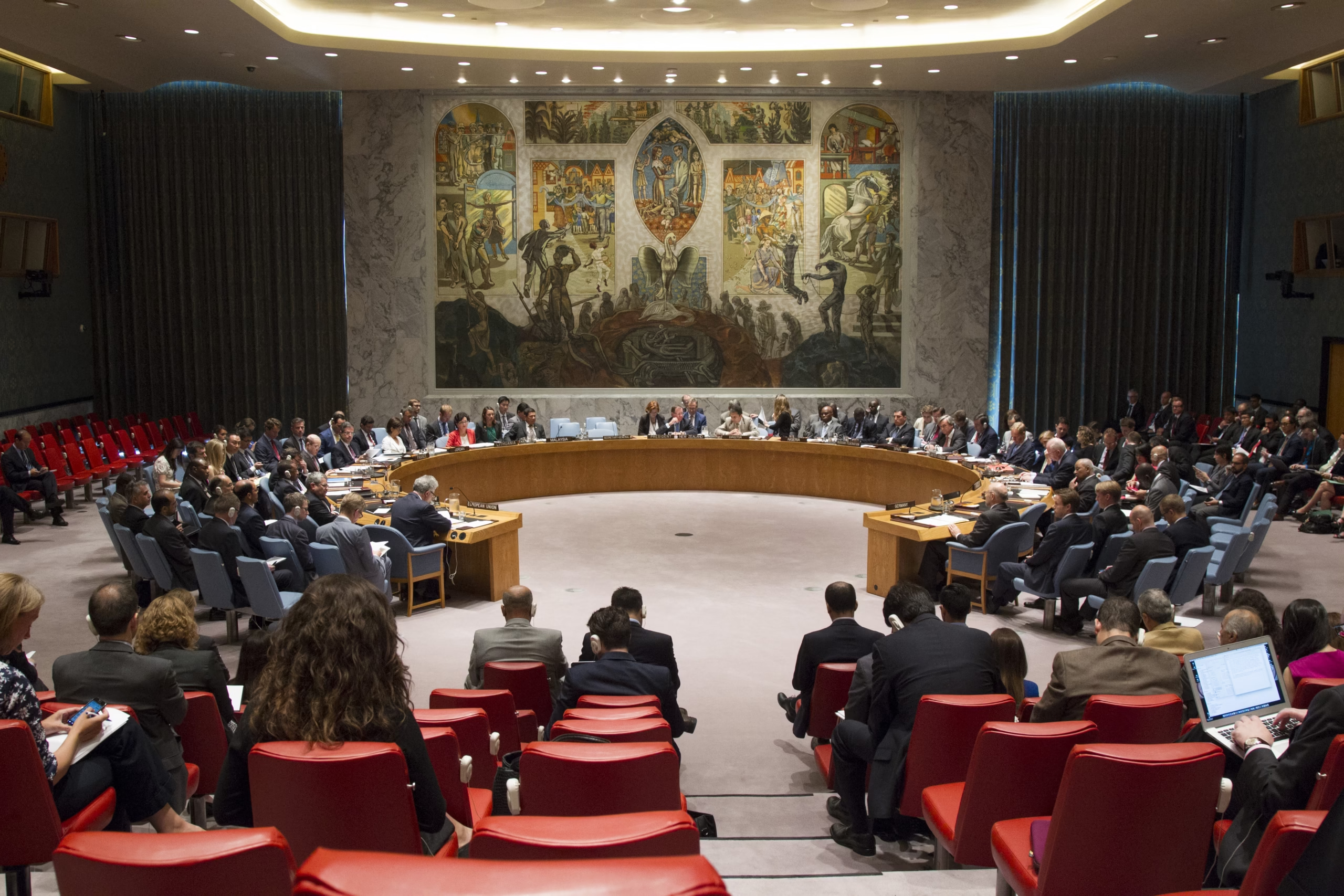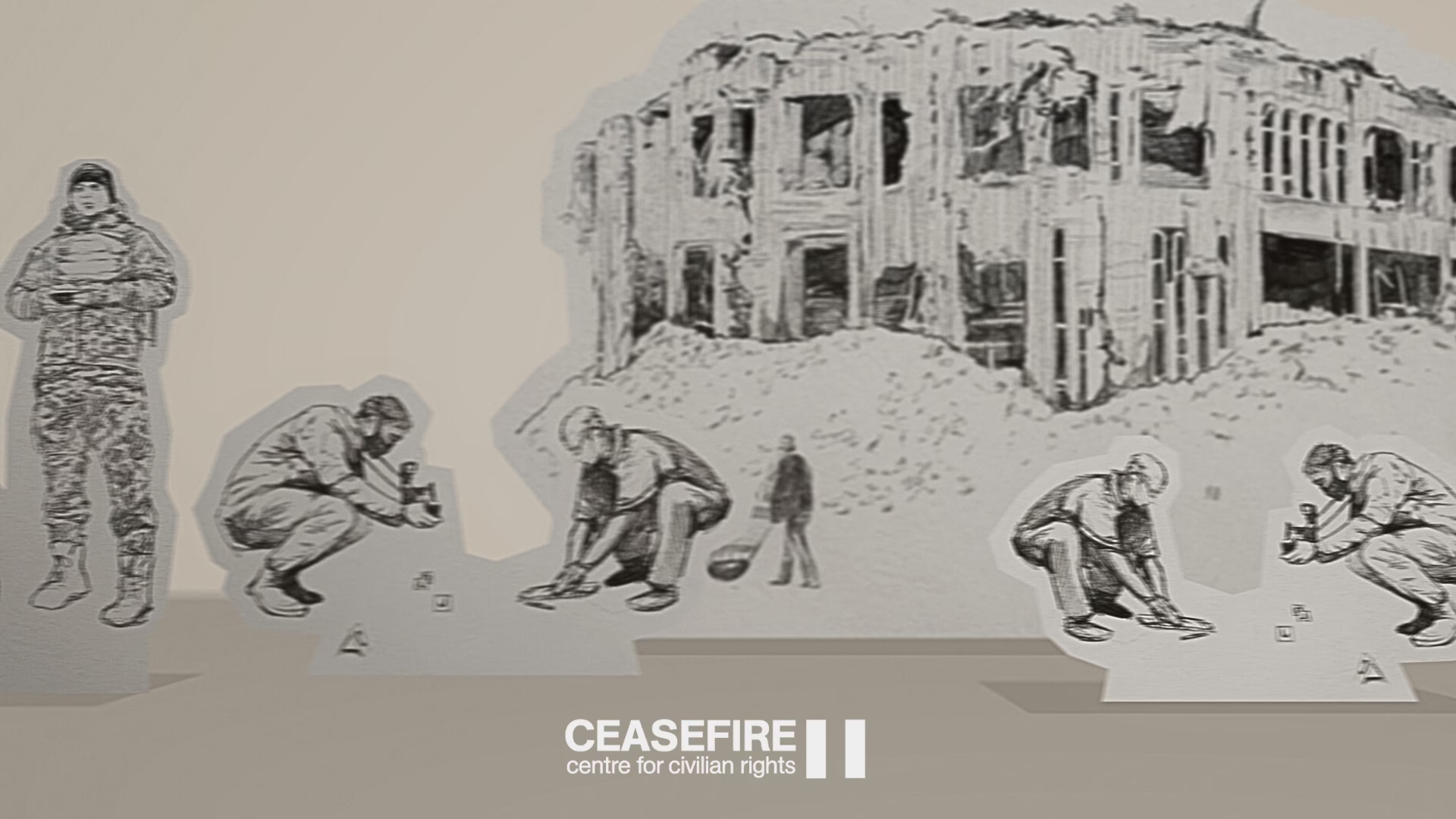A report published today by the Ceasefire Centre for Civilian Rights warns that as the UK boosts defence spending it is ill-prepared to protect civilians from harm from future UK military operations.
Civilian harm mitigation in large-scale combat operations: Lessons for UK defence finds that the UK Ministry of Defence (MoD) has scattered civilian protection across a patchwork of ad hoc policies, doctrines and operational practices which contain promising practices but leave significant gaps.
The increased tempo of operations, the complexity of urban battlefields and evolving military technologies mean that mitigating and responding to civilian harm during large-scale combat operations will be more challenging than in any other recent conflict. As the UK plans and prepares for such operations, the assumption that civilian harm mitigation and response (CHMR) will be less relevant is both outdated and dangerous.
‘As the Ministry of Defence prepares for war against a peer or near-peer adversary such as China or Russia, it must confront the reality that civilians are harmed even when militaries adhere to the laws of war’, said Mae Thompson, Senior Advocacy Officer at Ceasefire.
‘Developing a clear institutional framework to mitigate and respond to harm to civilians in all operational contexts would not only help the UK uphold its obligations under international law but could serve as a strategic advantage and reinforce the UK’s commitment to ethical military conduct and civilian rights.’
The UK’s lack of a comprehensive framework for mitigating and responding to harm to civilians from its own military operations places it behind leading international understanding and best practices. The report published today provides a comparative analysis and draws key lessons from the experiences of the United States and the Netherlands in developing their own CHMR frameworks.
At a time when armed conflict globally is taking an increasing human toll, meaningful reform in the UK does not, and must not, require waiting for a catastrophic incident to occur from UK military action.
The UK MoD should undertake a comprehensive assessment of its current approach to CHMR and establish a dedicated institutional policy framework that embeds CHMR at all levels and across all aspects of the defence ecosystem.
Notes for editors:
‘Civilian harm mitigation in large-scale combat operations: Lessons for UK defence’ is published by Ceasefire Centre for Civilian Rights on 5th November 2025.
The report’s authors are Megan Karlshoej-Pedersen, Dr Larry Lewis and Jessica Dorsey. The editor is Mae Thompson.
Ceasefire Centre for Civilian Rights is an international charity based in the UK which supports civilian-led monitoring of violations of international humanitarian law and human rights, helps civilians to secure justice, and promotes civilian protection and military accountability.
For media inquiries or further information, please contact:
Mae Thompson, Senior Advocacy Officer at Ceasefire
